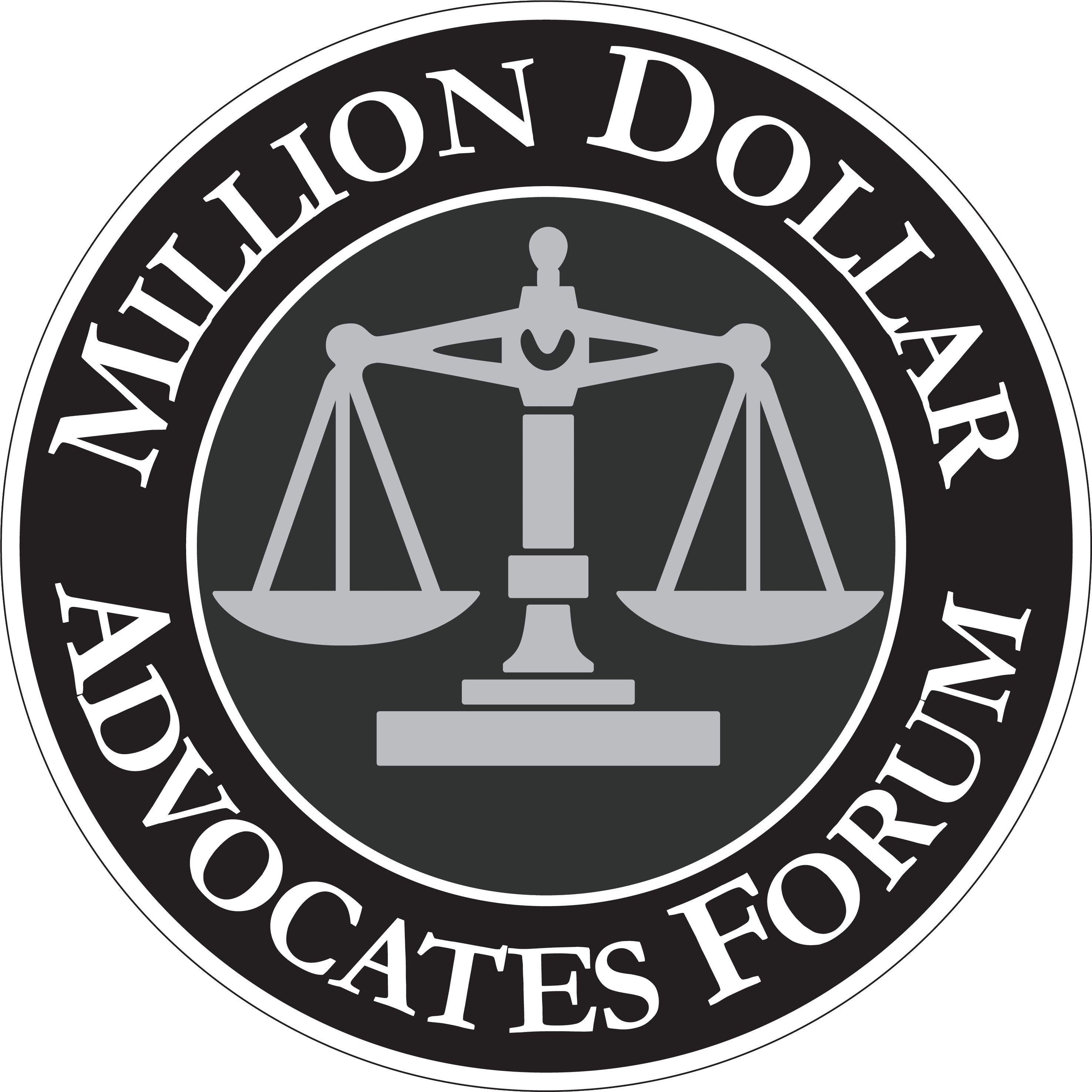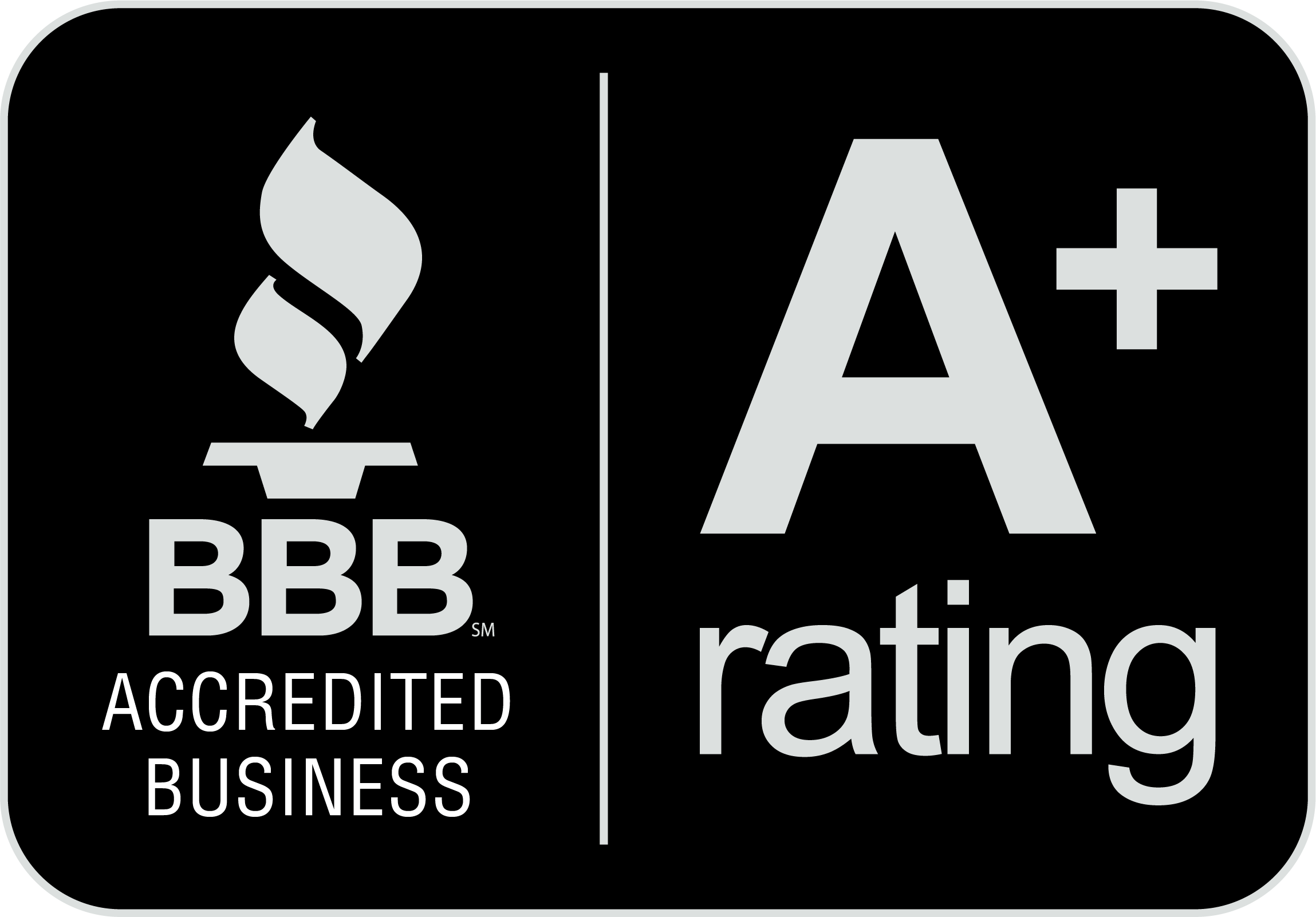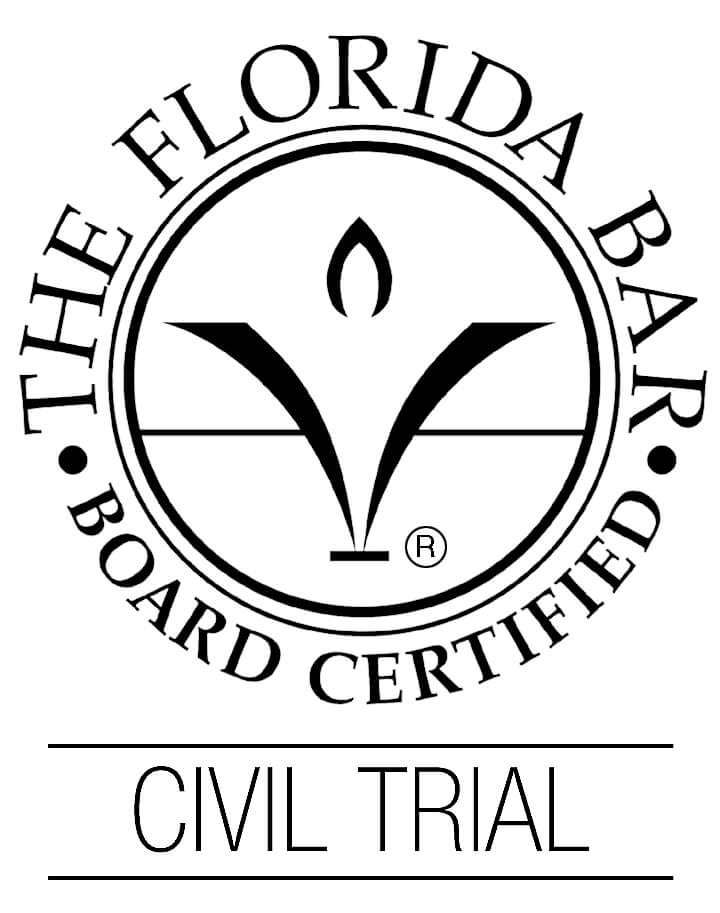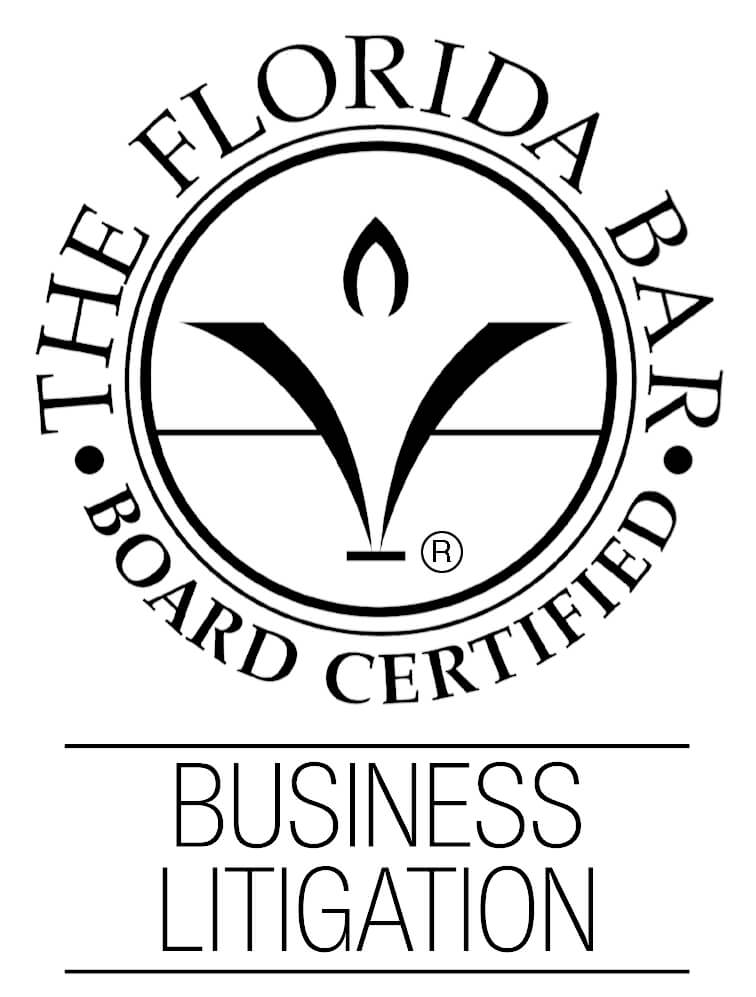Motorcycle Accidents Attorney
Riding a motorcycle gives you an unmatched sense of freedom and adventure, but unfortunately, that freedom comes with its own set of risks. Sudden accidents with motor vehicles or obstacles can quickly change a relaxing day on the road into a stressful, potentially life-changing scenario. In these moments, it’s important that you have an attorney you can speak with.
From filing an insurance claim to understanding your rights throughout, it’s helpful to have someone knowledgeable in the process by your side. At the Nation Law Firm, Attorney Mark Nation has carried a Florida motorcycle endorsement since 1980. As a former police officer, he has received special training in investigating motorcycle crashes. Our team understands the ins and outs of motorcycle law in Florida – and we’re just around the corner.
We’re a Florida firm serving the great people of this state just as any neighbor would. If you were injured in a motorcycle accident, our team can help you understand more about the legal side of your crash through our free case evaluation.
Common Causes of Motorcycle Accidents
Motorcyclists don’t have the same physical protections as traditional motorists, making even the smallest mistake all the more dangerous. Here are a few of the most common causes of motorcycle accidents in Florida:
- Left-turn collisions: Many motorcycle accidents occur when vehicles make left turns in front of an oncoming motorcycle, causing the motorcyclist to collide with the vehicle. This is often due to the driver’s failure to notice the motorcycle.
- Speeding:High speeds reduce a rider’s ability to react to roadway hazards and can increase the severity of their collision.
- Driving Under the Influence: The fine motor skills required to operate a motorcycle become dulled under the influence of drugs and alcohol, making accidents more likely.
- Lane Splitting:Land splitting, where the motorcyclist drives between cars on a divider line, commonly results in accidents. Unknowing drivers can change lanes and collide with lane-splitting motorcycles, which is why this behavior is illegal in Florida.
- Distracted Driving:Distracted drivers of motor vehicles can change lanes or move erratically without noticing a nearby motorcycle, causing them to collide. On the other hand, distracted motorcyclists also increase their risk of injury, as taking your eyes off the road limits reaction time to hazards.
- Roadway Hazards:Hazards such as potholes, debris, and uneven surfaces pose significant risks to motorcyclists.
Motorcycle accidents can quickly become serious. It’s important that motorcyclists take the proper precautions before and during their ride to ensure they’re mitigating as much risk as possible.
Unique Risks for Motorcyclists
Motorcyclists face unique challenges because of their transportation choices, as well as the unique conditions of Florida’s legal system and environment. Here are a few of the most common aspects of our home state that make riding just a bit more dangerous:
- Traffic Volume: Florida’s densely populated cities and heavy tourist traffic increase the likelihood of accidents, especially on busy highways and intersections. It’s a good idea to avoid riding during rush hour and other highly trafficked periods unless necessary.
- Weather Conditions: Warm weather makes for favorable riding conditions year-round, but sudden rainstorms can quickly challenge a rider’s ability to see and stay upright on the roadway.
- Unfamiliar Drivers: Tourists and elderly drivers may not fully understand traffic laws. Their mistakes can create hazards for motorcyclists, leading to more accidents.
- Helmet Law Exceptions: Florida law allows riders over 21 to forgo wearing a helmet if they have at least $10,000 in medical coverage, leading to more fatal accidents than states with this requirement annually.
- Wildlife: Florida’s wildlife, like deer, alligators, and small animals, pose a major threat to unsuspecting motorcyclists, especially in low visibility.
Motorcyclists should ride cautiously, according to weather, and with the assumption they aren’t seen. Bright gear can also assist with visibility. Taking these precautions, plus checking gear before every ride, can reduce your risk of an accident significantly.
Helmet Laws and Safety Gear for Motorcyclists in Florida
In Florida, motorcyclists are required to abide by certain safety precautions to keep themselves and others safe. However, there are some unique exceptions to these laws that should be fully understood:
Florida’s Helmet Laws
Unlike other states, Florida has exceptions to helmet laws that allow riders to operate their vehicle legally without head protection.
- Riders Under 21: Florida law requires all motorcyclists under 21 to wear a helmet approved by the Department of Transportation (DOT) without exception.
- Riders Over 21: Riders aged 21 and older may choose not to wear a helmet, but only if they carry at least $10,000 in medical insurance coverage for motorcycle-related injuries.
Still, all riders must wear some form of protective eyewear while on the road, regardless of whether they’re wearing a helmet or not.
Importance of Safety Gear
You can choose not to wear a helmet. But, if you’re involved in an accident, an insurance provider may argue that your decision not to wear one contributed to your injuries, which can diminish your total compensation. They may also leverage a lack of other protective gear - like riding pants and jackets - because wearing this gear shows that you’re taking reasonable steps to protect yourself.
Wearing protective gear while riding a motorcycle significantly reduces the chance of injury if you are involved in an accident. Although not legally required, here are a few ways that you can add some protection while riding:
- Gloves with armor or shells
- Durable Jackets
- Armored pants
- Protective boots
- Reflective gear, whether on your person or bike
Wearing proper safety gear offers a layer of protection between you and an injury. Not only that, but it also supports your legal position if an accident occurs. If you’ve been injured in a motorcycle accident, The Nation Law Firm is here to help for no upfront costs.
6 Steps to Take After a Motorcycle Accident
A motorcycle accident can be sudden and overwhelming, but taking the right steps immediately afterward can protect your health, legal rights, and potential compensation. Here’s what you should do:
- Get Yourself to a Safe Location and Assess Your Damage:Your first priority is your safety and well-being. Move to a safe location if possible and assess yourself for injuries. If you or anyone else at the scene is hurt, call 911 immediately.
- Call the Police:Florida law states that anyone involved in an accident with injuries, fatalities, or significant property damage must file a police report of their accident. This will establish an official record of the accident, which will support future insurance claims and legal proceedings.
- Gather Evidence:The police will take evidence for their report, but you should also collect your own evidence at the scene. Take photos and videos of the accident from different angles, speak with eyewitnesses to get their testimony, and request a copy of the police report.
- See a Doctor:Motorcycle accidents can cause serious injuries, even at low speeds, and cause damage that may not affect you immediately. It’s important to see a doctor after any accident for this reason, as their expertise can uncover signs of underlying injuries.
- File an Insurance Claim:Next, you’ll file a claim with your provider, seeking to recover compensation for your damages through your policy. This will include a detailed description of your accident and supporting evidence.
- Speak with a Motorcycle Accident Attorney:You can seek legal representation at any point after an accident, but the days after filing an insurance claim are often when you need them most. You’ll need to handle negotiations, ensure your offer reflects fair value, and stay within the statute of limitation guidelines, all of which can be challenging after an accident. An attorney understands this process very well and can swiftly guide you towards the best possible outcome.
Anotherveryhelpfultip after a motorcycle accident: Keep all of your receipts – and make copies of them if you can. The paper trail of an accident supports your claim throughout the legal process. Strong records, especially those documenting your expenses, are essential to successful claims.
Understanding Comparative Negligence in Florida
A major component of Florida’s motor vehicle law is comparative negligence, which refers to how fault is attributed after an accident.
How Comparative Negligence Affects Motorcycle Claims
If you’re found to be partially at fault for an accident, your compensation is reduced based on the percentage of responsibility. This sounds complicated, but it’s much easier to understand with an example:
- Example:You’re riding on a beautiful day, cruising around 10 mph over the speed limit. Suddenly, a car pulls out of a side street ahead of you, causing you to collide with the side of their vehicle. You take legal action and are awarded $100,000 in compensation, but you’re deemed 25% at fault because you were speeding. That 25% is applied to your total compensation, meaning you’d receive $75,000 instead of the full $100,000.
Factors that Influence Comparative Negligence
Insurance companies can argue that certain behaviors increased your risk of injury and, therefore, put you partially at fault for the accident, including:
- Helmet use
- Speeding or driving recklessly
- Failure to abide by traffic laws
- Riding with gear that limits mobility or protection, like tinted visors at night
Having an experienced attorney can help reduce your percentage of fault and fight for maximum compensation. For local assistance with proven power, complete our free case evaluation.
Types of Motorcycle-Specific Insurance Claims
Motorcycles are treated differently under Florida’s law, and it’s important that you understand the distinctions. Here’s what you need to know when filing a motorcycle insurance claim in the Sunshine State:
1. Florida Does Not Require Motorcyclists to Specific Coverages
Unlike traditional motor vehicles, motorcyclesare not requiredto hold:
- Personal Injury Protection (PIP) Insurance
- Bodily Injury Liability (BIL)
- Property Damage (PD) coverage
BIL and PD coverages are available as policy add-ons, while PIP insurance isn’t available to motorcyclists entirely. Anyone who finds themselves in an accident must seek compensation through their or the other party’s respective insurance coverage.
2. Uninsured/Underinsured Motorist (UM/UIM) Coverage Isn’t Required, But It’s Recommended
In 2022, the Insurance Information Institute estimated that 15.9% of Florida drivers were uninsured. If you’re involved in an accident with an uninsured driver, collecting compensation for damages is often very challenging, if not impossible, under certain circumstances.
Uninsured/Underinsured Motorist (UM/UIM) coverage offers financial protection against these accidents. It’s a policy add-on that you can opt for within your coverage.
- UM Coverage: Pays for medical expenses, lost wages, and damages if the at-fault driver has no insurance.
- UIM Coverage: Helps cover costs if the at-fault driver’s insurance limits are too low to cover your losses.
This coverage does come at an extra cost in your policy, which may cause some people to forgo it entirely. However, remember that although your policy might be a little more expensive, the fallout of an accident with an uninsured/underinsured motorist can be potentially life-changing.
Injuries Common in Motorcycle Accidents in Florida
Although riding a motorcycle offers undeniable freedom, it comes at a high cost: a lack of physical protection. Injuries are often more common and severe, ranging from:
- Traumatic Brain Injuries (TBI): Head trauma can cause cognitive impairment, memory loss, or permanent disability, especially for riders not wearing helmets.
- Spinal Cord Injuries: Severe crashes can lead to partial or total paralysis, which may require consistent care and rehabilitation.
- Amputations: Major collisions can result in injuries requiring partial or full amputations
- Internal Injuries: Damage to organs like the liver, lungs, or spleen may cause life-threatening internal bleeding.
- Road Rash & Soft Tissue Damage: Severe road rash, which occurs when skin rubs against pavement at high speeds, can lead to infection, permanent scarring, and the need for skin grafts.
- Fractures & Broken Bones: Arms, legs, and ribs are particularly vulnerable, often requiring surgery and lengthy recovery.
- Psychological Trauma: Many survivors suffer from PTSD, anxiety, or depression, impacting daily life and mental well-being.
If you’ve been injured in a motorcycle accident, we understand how traumatic this situation can be for you and your family. We’re just around the corner, ready to help – get started today with a free case evaluation.
Motorcycle Accident Statistics in Florida
Florida’s busy streets are dangerous for motorists and motorcyclists alike. Accidents are more common in certain cities and counties, like Miami-Dade County, which alone accounted for about one-third of the state's total vehicle accidents for the year.
Here are a few statistics that illustrate the true volume of motorcycle accidents in Florida – and why it’s important to ride safely.
- Total Crashes: In 2022, Florida recorded 9,270 motorcycle crashes. Of those crashes, 5,929 riders were injured, 1,999 of which with an incapacitating injury, and 631 were fatalities.
- Median Rider Age: Aged 39
- Percentage of Motorcycle Fatalities in Florida Who Were Florida Residents: 92%
- Median Hospital Expense for Treatment and Release After Motorcycle Accident Related Injuries: $11,556
- Median Hospital Expense for Those Admitted to the ER for Motorcycle Accident Related Injuries: $150,738.00
There are 15 non-fatal emergency visits per motorcycle fatality. You might not think that an accident will happen to you, but there’s always a chance it may. Ride safe, wear your gear, and make sure you’re properly covered for the worst-case scenario.
Motorcycle Accident Prevention Tips
Florida’s motorcyclists have the opportunity to experience the beautiful scenery of our state from a unique perspective. To keep on riding, follow these safety tips:
- Wear Protective Gear: Use a Department of Transportation-approved helmet, protective gear, gloves, and reflective colors on your bike and person for maximum safety and visibility.
- Ride Defensively: Stay out of blind spots, maintain a safe following distance, and stay mindful of the potential actions of oncoming vehicles.
- Be Cautious at Intersections: An oncoming vehicle failing to see a motorcyclist before turning at an intersection is one of the most common causes of accidents. Reduce your speed, scan for potential hazards, and be ready to adjust if necessary.
- Follow Traffic Laws:Lane-splitting is illegal in Florida and, therefore, shouldn’t be done. Following all traffic laws gives you a much higher chance of making it home in one piece.
- Perform Regular Bike Maintenance: Always perform timely maintenance – and perform a quick pre-ride check: Tire pressure, brakes, lights, and fluid levels.
- Adjust for Weather: Avoid riding in poor weather conditions if possible. If you do, slow down in the rain and high winds, and watch for slick road surfaces like painted lines, oil spots, and mud.
These precautions can significantly reduce your risk of an accident – and a serious injury should you be involved.
Frequently Asked Questions
What should I do immediately after being involved in a motorcycle accident in Florida?
Check for injuries and call 911 to report the accident. Gather evidence, take photos, exchange information with other drivers, and seek medical attention immediately, even if you don’t feel pain. Preventative medical care can help stop underlying issues from worsening.
How can I prove another driver was at fault in my motorcycle accident?
You can establish fault through police reports, photos/videos of the accident scene, eyewitness statements, traffic camera footage, expert testimony, and physical evidence, like receipts. An attorney from The Nation Law Firm can help gather and present this evidence effectively.
What types of compensation can I recover after a motorcycle accident?
You may be eligible to seek damages for medical expenses, lost wages, property damage, pain and suffering, and future rehabilitation costs through your policy, should you qualify. If the at-fault driver was reckless, punitive damages may also be available. An attorney can help you understand more about your eligibility for specific damages.
How do Florida’s helmet laws affect my ability to file an injury claim?
If you were not wearing a helmet and suffered a head injury, the insurance company may argue that your decision not to wear one contributed to the severity of your injuries, which could reduce your compensation. However, you should still file a claim regardless of helmet use and seek the assistance of a legal professional.
Can I file a claim if I was partially at fault for the motorcycle accident?
Yes, but under Florida’s modified comparative negligence rule, your compensation will be reduced by your percentage of fault. If you are more than 50% at fault, you may not be eligible for compensation.
What evidence should I collect to support my motorcycle accident case?
Gather police reports, medical records, witness statements, photos of the accident scene, vehicle damage, and any available dashcam or surveillance footage. Keeping records of lost wages and ongoing medical treatment also strengthens your case.
How long do I have to file a lawsuit for a motorcycle accident in Florida?
Florida’s statute of limitations allows you two years from the date of the accident to file a personal injury lawsuit. Missing this deadline may disqualify you from seeking compensation.
What are the most common causes of motorcycle accidents in Florida?
Major causes include left-turn collisions, speeding, distracted driving, road hazards, impaired drivers, and poor visibility due to blind spots. Weather conditions and inexperienced drivers also contribute to accidents.
Does insurance cover damages if the at-fault driver is uninsured or underinsured?
If the at-fault driver lacks sufficient coverage, Uninsured/Underinsured Motorist (UM/UIM) insurance can help cover your medical expenses and lost wages. While not required in Florida, this coverage is highly recommended for motorcyclists because of the financial consequences of an accident with an uninsured/underinsured motorist.
How can an attorney help with my motorcycle accident claim?
An attorney can gather evidence, negotiate with insurance companies, prove fault, and fight for maximum compensation. At The Nation Law Firm, we can also handle complex legal procedures, ensuring you’re awarded everything you deserve.






.svg)
